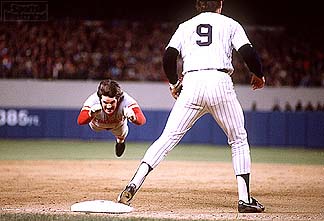Mr. Mamet in his (often hilarious) goodbye-to-liberalism essay credits the famed American newspaper editor William Allen White with the idea that government should basically stay out of the way of people trying to work out ways to get along and get ahead. Tom Stoppard ends with the same, central point: "The idea of the autonomy of the individual is echoed, I realize, all over the place in my writing."
Many Democrats know that individual autonomy is the moving spirit of our times. The Web is its relentless, daily metaphor. This notion is embedded in the thought of the writers David Mamet has been reading of late. Left-liberalism breeds many autonomous spirits -- but only in their private lives. The party's ethos is as it was in 1930 -- dark forces arrayed to thwart the delivery of benevolence to fragile masses. For the latest standard version, see the end of Mr. Obama's Tuesday speech on "the real culprits of the middle-class squeeze."
Unless the Democrats figure out a way to back down big brother, the years ahead likely will bring more Mamet drop-outs. Belief in autonomy may even reach Hollywood.
This tired notion that conservatives stand for rugged individualism, free markets, the gold standard of small government and little or no regulation has been exposed as bullshit this week in the pathetic and transparent bailout that you and I are financing for Bear Stearns. Perhaps more than any other bank, Bear represented the macho cutthroat of Wall Street, and they wore their arrogance proudly as they flooded the financial world with what has proven to be a steaming pile of worthless crap, known as mortgage-backed securities and derivatives based upon them. Their demise was halted by Henry Paulson, former CEO of Goldman and Bush's secretary of the treasury, who backstopped an absurd bid by JP Morgan to stave off bankruptcy for Bear. Make no mistake at all, the feds action was designed to save the bondholders of Bear, as well as the small coterie of investment banks who as counter parties who were locked into trades with Bear. Rather than let Bear slip into bankruptcy and the stricter bankruptcy laws that the Republican Congress passed, the government bailed out the masters of the universe, the Ayn Rand reading smugs who have been peddling the same tired bullshit that Henninger and Mamet spew when they speak of the rugged individualism of the right.
EJ Dionne called them out on this in very plain English. It's worth a read.
Never do I want to hear again from my conservative friends about how brilliant capitalists are, how much they deserve their seven-figure salaries and how government should keep its hands off the private economy.
The Wall Street titans have turned into a bunch of welfare clients. They are desperate to be bailed out by government from their own incompetence, and from the deregulatory regime for which they lobbied so hard. They have lost "confidence" in each other, you see, because none of these oh-so-wise captains of the universe have any idea what kinds of devalued securities sit in one another's portfolios.
So they have stopped investing. The biggest, most respected investment firms threaten to come crashing down. You can't have that. It's just fine to make it harder for the average Joe to file for bankruptcy, as did that wretched bankruptcy bill passed by Congress in 2005 at the request of the credit card industry. But the big guys are "too big to fail," because they could bring us all down with them.
Enter the federal government, the institution to which the wealthy are not supposed to pay capital gains or inheritance taxes. Good God, you don't expect these people to trade in their BMWs for Saturns, do you? ...
But in the enthusiasm for deregulation that took root in the late 1970s, flowered in the Reagan era and reached its apogee in the second Bush years, we forgot the lesson that government needs to keep a careful watch on what capitalists do. Of course, some deregulation can be salutary, and the market system is, on balance, a wondrous instrument -- when it works. But the free market is just that: an instrument, not a principle.
In 1996, back when he was a Republican senator from Maine, William Cohen told me: "We have been saying for so long that government is the enemy. Government is the enemy until you need a friend."
So now the bailouts begin, and Wall Street usefully might feel a bit of gratitude, perhaps by being willing to have the wealthy foot some of the bill or to acknowledge that while its denizens were getting rich, a lot of Americans were losing jobs and health insurance. I'm waiting.
It's about time.

No comments:
Post a Comment